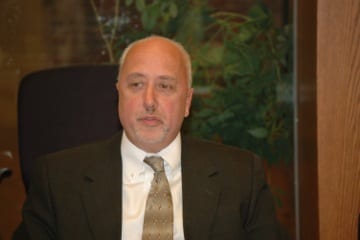Who is a member?
Our members are the local governments of Massachusetts and their elected and appointed leadership.
Mass Innovations, From The Beacon, April 2016
 Inspired by the Gloucester Police Department’s policy of getting those addicted to heroin and opioids into treatment rather than arresting them, Brockton has launched an expanded version that partners with a local nonprofit organization, the VA Medical Center, and other treatment facilities to get people help.
Inspired by the Gloucester Police Department’s policy of getting those addicted to heroin and opioids into treatment rather than arresting them, Brockton has launched an expanded version that partners with a local nonprofit organization, the VA Medical Center, and other treatment facilities to get people help.
The issue is a personal one for Mayor Bill Carpenter, whose son, as a hockey player at Brockton High School, first became addicted to OxyContin and subsequently began using heroin more than a decade ago. While getting his son treatment, Carpenter also spoke out before the Brockton School Committee on the need for the schools to do more. Ultimately, he ran for the School Committee himself and helped found the state’s fourth recovery high school. Four years later, he ran for mayor.
After taking office in 2014, Carpenter asked his police chief to have Brockton police officers cease arresting people for simple possession of opioids, and Brockton became the first city in Massachusetts to require all of its first responders to carry naloxone (known as Narcan), the drug that can reverse the effects of an opioid overdose.
While Narcan has saved many lives, “unfortunately in 2015, we also had 123 suspected drug overdose deaths,” Carpenter said. “We were averaging 10 overdose deaths a month in just the city. Within those numbers, Brockton is, at least regionally, in the epicenter of the epidemic.”
Brockton has two emergency rooms, two courthouses, two methadone clinics, and a number of social service agencies, Carpenter said.
“We have a lot of services and agencies that attract people struggling with addiction,” he said. “Slightly more than 50 percent of the overdose victims were not even Brockton residents. We’re taking a big burden of this overdose crisis.”
Much like Gloucester’s ANGEL program, Brockton offers help rather than arrest to addicts who go to the police station, turn in their drugs and drug paraphernalia, and commit to treatment. In Brockton, addicts are assigned a volunteer who works to get them into a treatment program.
Where Brockton’s Champion Plan differs is that the volunteers are working in concert with Stairway to Recovery, a peer-to-peer recovery center that is only a few steps away from the Brockton Police station.
“They became a key, important partner because they’re providing the safe haven and peer support during that critical time that we’ve got the person in a safe place,” Carpenter said. “They’re willing to go for treatment, but we need to keep their head in the game and focused on getting in for treatment while we work to find them a bed, which can sometimes takes hours or even days, unfortunately.”
Sarah Santos, a Stairway to Recovery intern from UMass Boston, said addicts who go the police station are walked down to the organization’s office and greeted by a peer member, also in recovery, who signs the person in and walks them through the process of getting into a treatment program.
“Obviously this is somebody that’s going to be supportive, kind, welcoming,” she said.
During the walk from the police station and after an addict arrives at Stairway to Recovery, the “champion” helps to discern what kind of treatment or support the person is seeking, which helps them match the addict with the appropriate program.
“I already have an idea of where I’m going to call after our conversation, and within 20 minutes we have a place all set,” she said. “It’s about [the person seeking help].”
The idea is to make the addict feel welcomed “and he’s going to get what he needs, not necessarily what he thinks he needs.”
The Champion Program partners with local treatment programs and with Brewster Ambulance, which will take an addict directly to a treatment facility instead of an emergency room if their evaluation checks out, regardless of insurance coverage.
Carpenter said the city’s two emergency rooms are already overburdened and are not a good first stop for addicts.
“The likely scenario is that they’re going to end up walking out of the ER and never receive any services,” he said. “We want to place as many people as we can directly from our safe haven to a treatment center, and try to circumvent the ER with as many people as we can.”
Gosnold Treatment Center, High Point Treatment Center, Spectrum Health Systems, Adcare Hospital, and Norcap Lodge are all treatment partners in the Champion Plan, while the Learning to Cope group is also working with the city to provide support to families of those battling addiction. Another partner is a treatment facility at the VA Medical Center in Brockton.
“We have a retired career military guy coordinating the veteran outreach, who knows how to navigate that system,” Carpenter said. “We have a commitment from the VA to take anyone directly into their urgent care that we deliver that served in the military. We’re not going to hold them up to go through any eligibility process. If they subsequently determine that the person is not eligible for the VA benefits, then they will assist in transferring the person somewhere else.”
Carpenter said his city is always looking for new and better ideas.
“We’re certainly watching what other people are doing,” he said. “When someone has that moment – ‘I’ve gotta stop’ – we’ve got to make it really easy for them to walk in, say, ‘Please help me,’ and have a whole organization ready to take them by the hand.”